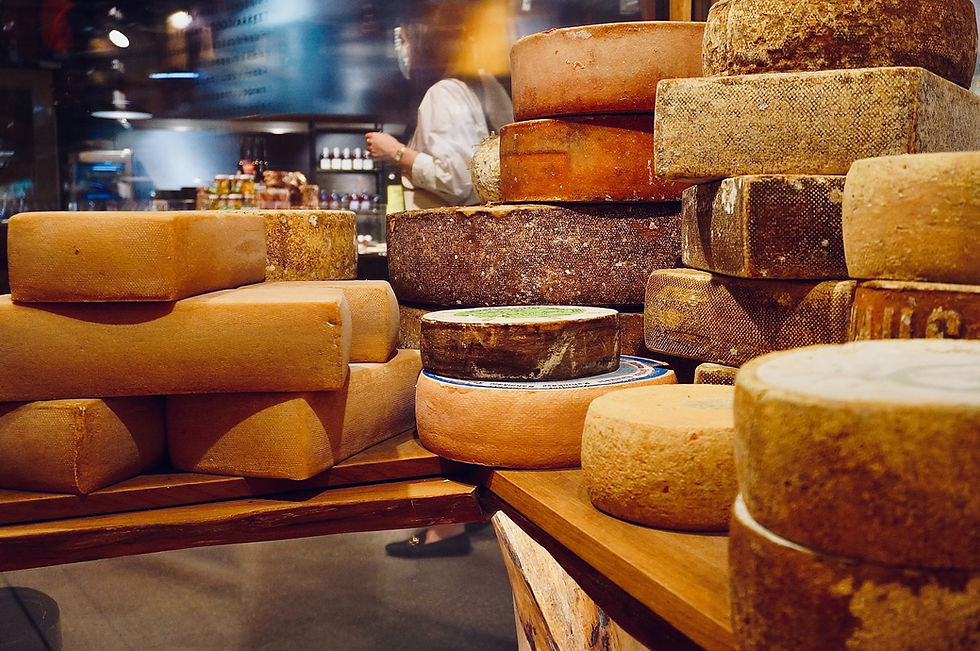- Paul Andrews - CEO Family Business United
- 1 day ago
- 2 min read

There is something profoundly comforting about cheese. Whether melted over toast, paired with a glass of wine, or savoured in thick wedges at the end of a meal, cheese holds a special place in the British culinary landscape. It is a food steeped in tradition, yet endlessly reinvented, a staple that has endured through centuries of change.
Britain’s love affair with cheese runs deep. From the crumbly tang of Lancashire to the creamy richness of Stilton, the variety produced on these shores alone speaks to a long-standing passion for this ancient craft. Once made in farmhouse kitchens and wrapped in cloth to mature in cool cellars, British cheese is now a proud emblem of regional identity and artisanal revival. In recent decades, cheesemaking in the UK has experienced a remarkable renaissance. What was once considered a fading art has re-emerged with vigour, led by small producers who are as much storytellers as they are makers. Their cheeses tell tales of landscape and heritage, from the grassy hills of Somerset to the rugged pastures of the Scottish Highlands.
For many, cheese is more than food – it’s a centrepiece, a comfort, a conversation. It appears at celebrations and quiet suppers alike. There’s a ritual to choosing it, slicing it, pairing it with the right cracker or chutney. A good cheeseboard can speak of decadence, of generosity, of care taken in curating an experience rather than just serving a snack.
Perhaps what makes cheese so enduringly beloved is its sheer versatility. It can be humble or indulgent, rustic or refined. It features in everyday classics – the grilled cheese sandwich, the ploughman’s lunch, the jacket potato smothered in cheddar – as well as in fine dining menus where its complexities are celebrated and elevated. It plays just as happily in the background as it does centre stage.

In an age increasingly aware of provenance and process, cheese has also found itself at the heart of conversations around sustainability and craft. Many British cheesemakers now focus on raw milk, heritage breeds, and traditional methods, often with an eye to preserving ecosystems and supporting local economies. Consumers, in turn, are becoming more curious, more willing to explore the stories behind the rind – how the cheese was made, where the animals graze, who shaped it by hand.
Cheese, for all its historic roots, is also quietly evolving. Plant-based alternatives are expanding, catering to a growing audience of vegans and the lactose-intolerant. Innovations in flavour and technique are emerging from modern dairies that still honour the slow, careful rhythm of true craftsmanship.
But at its heart, cheese remains delightfully simple. It’s something to be shared, something to linger over, something that brings people together. A sliver of farmhouse cheddar or a spoonful of soft goat’s cheese can evoke place, memory, and mood in a way few other foods can. It reminds us of childhood picnics, holiday lunches, or the comfort of late-night fridge raids.
In Britain, cheese is not just a food – it’s part of the cultural fabric. A source of pride, a nod to the past, and a constant presence at tables across the nation. However you take it – sliced, crumbled, melted or straight from the knife – cheese is, quite simply, one of life’s great pleasures.







